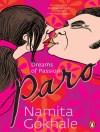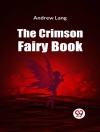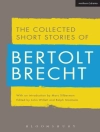Daniel Defoe’s ‘The Adventures of Robinson Crusoe’ presents a masterful exploration of survival, isolation, and the human spirit through the trials of its titular character, Robinson Crusoe. This complete three-book collection captures Crusoe’s harrowing journey as he becomes shipwrecked on a desolate island, where he must rely on his resourcefulness and ingenuity to navigate the perils of nature. Defoe employs a vivid prose style, rich in detail and emblematic of the early 18th-century novelistic tradition, blending realism with adventure and moral reflection, which is essential for understanding the cultural context of the era marked by exploration and imperialism. Defoe, a prominent figure of the Enlightenment, was deeply influenced by his experiences as a merchant, journalist, and pamphleteer. His own tumultuous life, which included imprisonment and financial hardship, informed his portrayal of Crusoe as a symbol of individualism and resilience. Defoe’s keen observations on society, economics, and human psychology resonate throughout the narrative, making it not only a tale of adventure but also a profound commentary on self-sufficiency and the relationship between man and nature. This compelling collection is highly recommended for readers seeking an engaging narrative that transcends time. The interplay between adventure and philosophical inquiry makes it a vital text for anyone interested in literature, history, or the human condition. Defoe’s classic resonates with contemporary themes of solitude, survival, and self-discovery, encouraging readers to reflect on their own existence and place in the world.
About the author
Daniel Defoe (circa 1660-1731) was an English writer, journalist, and spy, now most famous for his novel ‘Robinson Crusoe, ‘ originally published in 1719. ‘The Adventures of Robinson Crusoe (The Complete Three-Book Collection)’ comprises the trilogy that follows the life, struggles, and adventures of Crusoe, a castaway who spends twenty-eight years on a remote tropical island. Defoe is often credited with popularizing the novel genre in Britain and is noted for his engaging narrative voice, vivid portrayal of character, and detailed descriptions that reflect the concerns of the eighteenth century, notably trade, colonialism, and the rights of individuals. Besides ‘Robinson Crusoe, ‘ Defoe authored several other influential works, including ‘Moll Flanders’ and ‘A Journal of the Plague Year, ‘ exemplifying his versatile writing style that ranged from picaresque novels to political pamphlets. His life, as colorful and complex as his writing, involved diverse businesses before turning to literature and participating in the world of politics, where he was at times censored and imprisoned for his views. Defoe’s literary legacy rests on his innovative approach to storytelling and his ability to capture the consciousness of his era through the written word.












